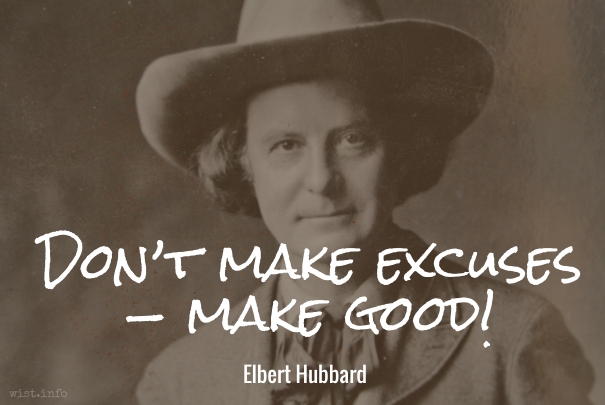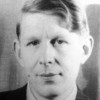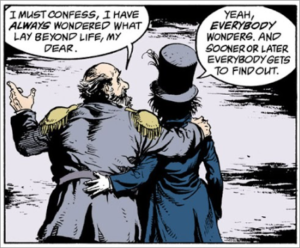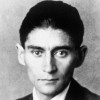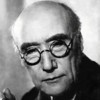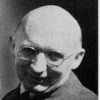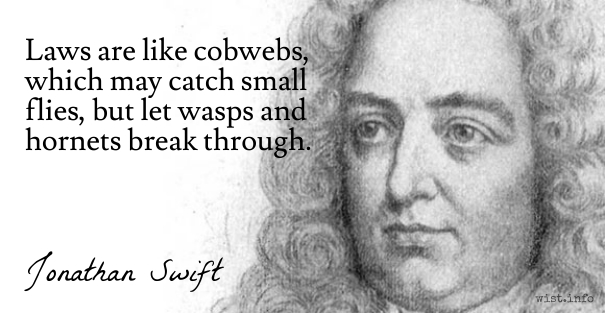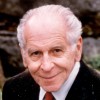The pursuit of perfection, then, is the pursuit of sweetness and light. He who works for sweetness and light, works to make reason and the will of God prevail. He who works for machinery, he who works for hatred, works only for confusion. Culture looks beyond machinery, culture hates hatred; culture has one great passion, the passion for sweetness and light.
Matthew Arnold (1822-1888) English poet and critic
Culture and Anarchy, ch. 1 “Sweetness and Light” (1869)
Full text.
There is not an idea that cannot be expressed in 200 words. But the writer must know precisely what he wants to say. If you have nothing to say and want badly to say it, then all the words in all the dictionaries will not suffice.
Administrivia: Bible Verses in WIST
I’ve made a change in how Bible verses are quoted in WIST. Whereas before I had Bible quotes falling underneath “Other Authors and Sources,” I’ve now designated “Bible” as an “author” in the database, allowing easier grouping and finding of quotations from there. (One could arguably assert various “authors” within the Bible, especially in the New Testament, but I’m not going to take it to that detail; the authorship is associated with the book cited and is subject to whatever scholarship the reader cares to accept.)
I’m also trying to be more diligent about citing the translation in use, since that can have a lot of influence on how the ideas are presented (or even whether folks consider them “valid”). I’m generally not citing source links, as the reader may have their preference. The three I use, for different reasons:
- Bible Gateway (the most robust site out there)
- NetBible (includes some translations not in Bible Gateway, like NRSV, as well as some linguistic resources)
- Olive Tree (includes one of my favorite translations, Today’s English Version)
There are other Holy Books / Scripture out there which I still have lumped under “Other,” mostly because the number of quote I have from them is relatively small. As I see a need, I’ll break them out into their own “author” categories.
“Be careful not to do your ‘acts of righteousness’ before men, to be seen by them. If you do, you will have no reward from your Father in heaven.
“So when you give to the needy, do not announce it with trumpets, as the hypocrites do in the synagogues and on the streets, to be honored by men. I tell you the truth, they have received their reward in full. But when you give to the needy, do not let your left hand know what your right hand is doing, so that your giving may be in secret. Then your Father, who sees what is done in secret, will reward you.
“And when you pray, do not be like the hypocrites, for they love to pray standing in the synagogues and on the street corners to be seen by men. I tell you the truth, they have received their reward in full. But when you pray, go into your room, close the door and pray to your Father, who is unseen. Then your Father, who sees what is done in secret, will reward you.”
The Bible (The New Testament) (AD 1st - 2nd C) Christian sacred scripture
Matthew 6:1-6 (NIV)
(Source)
KJV: "Take heed that ye do not your alms before men, to be seen of them: otherwise ye have no reward of your Father which is in heaven. "Therefore when thou doest thine alms, do not sound a trumpet before thee, as the hypocrites do in the synagogues and in the streets, that they may have glory of men. Verily I say unto you, They have their reward. But when thou doest alms, let not thy left hand know what thy right hand doeth: That thine alms may be in secret: and thy Father which seeth in secret himself shall reward thee openly. "And when thou prayest, thou shalt not be as the hypocrites are: for they love to pray standing in the synagogues and in the corners of the streets, that they may be seen of men. Verily I say unto you, They have their reward. But thou, when thou prayest, enter into thy closet, and when thou hast shut thy door, pray to thy Father which is in secret; and thy Father which seeth in secret shall reward thee openly."
His uncertainty forces the enthusiast to puff up his truths, of which he feels none too sure, and to win proselytes to his side in order that his followers may prove to himself the value and trustworthiness of his own convictions. … Only when convincing someone else does he feel safe from gnawing doubts.
Nothing we use or hear or touch can be expressed in words that equal what is given by the senses.
Hannah Arendt (1906-1975) German-American philosopher, political theorist
The Life of the Mind, Vol. 1 “Thinking,” Introduction (1977)
(Source)
Reprinted in "Thinking -- I" New Yorker (21 Nov 1977)
Whenever there is in any country, uncultivated lands and unemployed poor, it is clear that the laws of property have been so far extended as to violate natural right. The earth is given as a common stock for man to labour & live on. If, for the encouragement of industry we allow it to be appropriated, we must take care that other employment be furnished to those excluded from the appropriation. If we do not the fundamental right to labour the earth returns to the unemployed. It is too soon yet in our country to say that every man who can not find employment but who can find uncultivated land, shall be at liberty to cultivate it, paying a moderate rent. But it is not too soon to provide by every possible means that as few as possible shall be without a little portion of land. The small landholders are the most precious part of a state.
Thomas Jefferson (1743-1826) American political philosopher, polymath, statesman, US President (1801-09)
Letter to James Madison (28 Oct 1785)
(Source)
The greatest evil is not done in those sordid dens of evil that Dickens loved to paint … but is conceived and ordered (moved, seconded, carried and minuted) in clear, carpeted, warmed, well-lighted offices, by quiet men with white collars and cut fingernails and smooth-shaven cheeks who do not need to raise their voices.
It seems to me what is called for is an exquisite balance between two conflicting needs: the most skeptical scrutiny of all hypotheses that are served up to us and at the same time a great openness to new ideas. Obviously those two modes of thought are in some tension. But if you are able to exercise only one of these modes, whichever one it is, you’re in deep trouble.
If you are only skeptical, then no new ideas make it through to you. You never learn anything new. You become a crotchety old person convinced that nonsense is ruling the world. (There is, of course, much data to support you.) But every now and then, maybe once in a hundred cases, a new idea turns out to be on the mark, valid and wonderful. If you are too much in the habit of being skeptical about everything, you are going to miss or resent it, and either way you will be standing in the way of understanding and progress.
On the other hand, if you are open to the point of gullibility and have not an ounce of skeptical sense in you, then you cannot distinguish useful ideas from the worthless ones. If all ideas have equal validity then you are lost, because then, it seems to me, no ideas have any validity at all.
Carl Sagan (1934-1996) American scientist and writer
“The Burden of Skepticism,” Pasadena lecture (1987)
(Source)
Reprinted in The Skeptical Inquirer (Fall 1987).
Failure: A man who has blundered but is not able to cash in on the experience.
Elbert Hubbard (1856-1915) American writer, businessman, philosopher
The Roycroft Dictionary (1914)
(Source)
So give to the poor; I’m begging you, I’m warning you, I’m commanding you, I’m ordering you.
Augustine of Hippo (354-430) Christian church father, philosopher, saint [b. Aurelius Augustinus]
Sermon 61, para. 13
In some sources / arrangements, cited as Sermon 11. Full text.Alt trans.:
- "Give then to the poor; I beg, I advise, I charge, I command you. "
- "Therefore, give to the poor. I beg you, I admonish you, I charge you, I command you to give." [tr. Schopp, Deferrari (1951)]
NORTON I: I must confess, I have always wondered what lay beyond life, my dear.
DEATH: Yeah, everybody wonders. And sooner or later everybody gets to find out.
Neil Gaiman (b. 1960) British author, screenwriter, fabulist
Sandman, Book 6. Fables and Reflections, # 31 “Three Septembers and a January” (1991-10)
(Source)
Man cannot live without a permanent trust in something indestructible in himself, though both the indestructible element and the trust may remain permanently hidden from him. One of the ways in which this hiddenness can express itself is through faith in a personal god.
[Der Mensch kann nicht leben ohne ein dauerndes Vertrauen zu etwas Unzerstörbarem in sich, wobei sowohl das Unzerstörbare als auch das Vertrauen ihm dauernd verborgen bleiben können. Eine der Ausdrucksmöglichkeiten dieses Verborgen-Bleibens ist der Glaube an einen persönlichen Gott.]
Alt. trans.:
- “Man cannot live without an enduring faith in something indestructible within him.” [In Max Brod, introduction to Gustav Janouch, Conversations with Kafka (1953) [tr. Rees]]
- “Man cannot live long without a steady faith in something indestructible within him, though both faith and the indestructible thing may remain permanently concealed from him.”
Franz Kafka (1883-1924) Czech-Austrian Jewish writer
Notebook, Aphorism #50 [tr. Kaiser and Wilkins]
Alt. trans.:
- "Man cannot live without an enduring faith in something indestructible within him." [In Max Brod, introduction to Gustav Janouch, Conversations with Kafka (1953) [tr. Rees]]
- "Man cannot live long without a steady faith in something indestructible within him, though both faith and the indestructible thing may remain permanently concealed from him."
I would appreciate it if they would call a halt on all their devoted efforts to find a way to abolish war or eliminate disease or run trains with atoms or extend the span of human life to a couple of centuries, and everybody concentrate for a while on how to wake me up in the morning without my resenting it. It may be that a bevy of beautiful maidens in pure silk yellow very sheer gowns, barefooted, singing Oh, What a Beautiful Morning and scattering rose petals over me would do the trick, but I’d have to try it.
Poverty must have many satisfactions, else there would not be so many poor people.
What is the course of the life
Of mortal men on the earth?—
Most men eddy about
Here and there—eat and drink,
Chatter and love and hate,
Gather and squander, are raised
Aloft, are hurl’d in the dust,
Striving blindly, achieving
Nothing; and, then they die—
Perish; and no one asks
Who or what they have been,
More than he asks what waves
In the moonlit solitudes mild
Of the midmost Ocean, have swell’d,
Foam’d for a moment, and gone.
You accept certain unlovely things about yourself and manage to live with them. The atonement for such an acceptance is that you make allowances for others — that you cleanse yourself of the sin of self-righteousness.
In every age of transition men are never so firmly bound to one way as when they are about to abandon it, so that fanaticism and intolerance reach their most intense forms just before tolerance and mutual acceptance come to be the natural order of things.
Without being forgiven, released from the consequences of what we have done, our capacity to act would, as it were, be confined to one single deed from which we could never recover; we would remain the victims of its consequences forever, not unlike the sorcerer’s apprentice who lacks the magic formula to break the spell.
I look upon all the world as my parish; thus far I mean, that, in whatever part of it I am, I judge it meet, right, and my bounden duty to declare unto all that are willing to hear, the glad tidings of salvation.
Before people complain of the obscurity of modern poetry, they should first examine their consciences and ask themselves with how many people and on how many occasions they have genuinely and profoundly shared some experience with another; they might also ask themselves how much poetry of any period they can honestly say that they understand.
‘Twould ring the bells of Heaven
The wildest peal for years,
If Parson lost his senses
And people came to theirs,
And he and they together
Knelt down with angry prayers
For tamed and shabby tigers
And dancing dogs and bears,
And wretched, blind, pit ponies,
And little hunted hares.
Progress generally begins in skepticism about accepted truths. Intellectual freedom means the right to reexamine much that has been long taken for granted. A free man must be a reasoning man, and he must dare to doubt what a legislative or electoral majority may most passionately assert. The danger that citizens will think wrongly is serious, but less dangerous than atrophy from not thinking at all.
Robert H. Jackson (1892-1954) US Supreme Court Justice (1941-54), lawyer, jurist, politician
American Communications Assn. v. Douds, 339 U.S. 382, 442 (1950) [concurrence and dissent]
(Source)
Usually, even a non-Christian knows something about the earth, the heavens, and the other elements of this world, about the motion and orbit of the stars and even their size and relative positions, about the predictable eclipses of the sun and moon, the cycles of the years and the seasons, about the kinds of animals, shrubs, stones, and so forth, and this knowledge he hold to as being certain from reason and experience. Now, it is a disgraceful and dangerous thing for an infidel to hear a Christian, presumably giving the meaning of Holy Scripture, talking nonsense on these topics; and we should take all means to prevent such an embarrassing situation, in which people show up vast ignorance in a Christian and laugh it to scorn. […] If they find a Christian mistaken in a field which they themselves know well and hear him maintaining his foolish opinions about our books, how are they going to believe those books in matters concerning the resurrection of the dead, the hope of eternal life, and the kingdom of heaven, when they think their pages are full of falsehoods and on facts which they themselves have learnt from experience and the light of reason?
[Plerumque enim accidit ut aliquid de terra, de coelo, de caeteris mundi huius elementis, de motu et conversione vel etiam magnitudine et intervallis siderum, de certis defectibus solis ac lunae, de circuitibus annorum et temporum, de naturis animalium, fruticum, lapidum, atque huiusmodi caeteris, etiam non christianus ita noverit, ut certissima ratione vel experientia teneat. Turpe est autem nimis et perniciosum ac maxime cavendum, ut christianum de his rebus quasi secundum christianas Litteras loquentem, ita delirare audiat, ut, quemadmodum dicitur, toto coelo errare conspiciens, risum tenere vix possit. […] Cum enim quemquam de numero Christianorum in ea re quam optime norunt, errare comprehenderint, et vanam sententiam suam de nostris Libris asserere; quo pacto illis Libris credituri sunt, de resurrectione mortuorum, et de spe vitae aeternae, regnoque coelorum, quando de his rebus quas iam experiri, vel indubitatis numeris percipere potuerunt, fallaciter putaverint esse conscriptos?]
DREAM: It has always been the prerogative of children and half-wits to point out that the emperor has no clothes. But the half-wit remains a half-wit, and the emperor remains an emperor.
Neil Gaiman (b. 1960) British author, screenwriter, fabulist
Sandman, Book 9. The Kindly Ones, # 60 “The Kindly Ones: 4” (1994-06)
(Source)
Administrivia: WIST on Twitter!
WIST is now echoed out to Twitter at @WISTquotes. Each quotation I add will be excerpted to that site as they’re done each day. Of course, with only 140 characters, all folks there will get will be the name, the first 60 characters of the quote, a link back to the WIST entry. E.g.,
Lincoln, Abraham: “Let us have faith that right makes might, and in that faith…” http://bit.ly/dBh9EQ #quotes
My hope is that this will provide folks over in the Twitterverse with something useful, as well as driving a bit more traffic over to this site.
Let me know what you think, or if you have any other ideas for how to improve WIST.
You can tell the size of a man by the size of the thing that makes him mad.
Adlai Stevenson (1900-1965) American diplomat, statesman
“Faith in Liberalism,” Address, State Committee of the Liberal Party in New York City (28 Aug 1952)
Full text.
HELENA: Oft expectation fails and most oft there
Where most it promises, and oft it hits
Where hope is coldest and despair most fits.William Shakespeare (1564-1616) English dramatist and poet
All’s Well That Ends Well, Act 2, sc. 1, l. 160ff (2.1.160-162) (1602?)
(Source)
Our forefathers found the evils of free thinking more to be endured than the evils of inquest or suppression. They gave the status of almost absolute individual rights to the outward means of expressing belief. I cannot believe that they left open a way for legislation to embarrass or impede the mere intellectual processes by which those expressions of belief are examined and formulated. This is not only because individual thinking presents no danger to society, but because thoughtful, bold and independent minds are essential to wise and considered self-government.
Robert H. Jackson (1892-1954) US Supreme Court Justice (1941-54), lawyer, jurist, politician
American Communications Association v. Douds, 339 U.S. 382, 442 (1950) [concurrence and dissent]
(Source)
Is it so small a thing
To have enjoy’d the sun,
To have lived light in the spring,
To have loved, to have thought, to have done;
To have advanc’d true friends, and beat down baffling foes?Matthew Arnold (1822-1888) English poet and critic
Empedocles on Etna, Act I, sc. ii (1852)
Full text.
If your enemy is secure at all points, be prepared for him. If he is in superior strength, evade him. If your opponent is temperamental, seek to irritate him. Pretend to be weak, that he may grow arrogant. If he is taking his ease, give him no rest. If his forces are united, separate them. If sovereign and subject are in accord, put division between them. Attack him where he is unprepared, appear where you are not expected.










